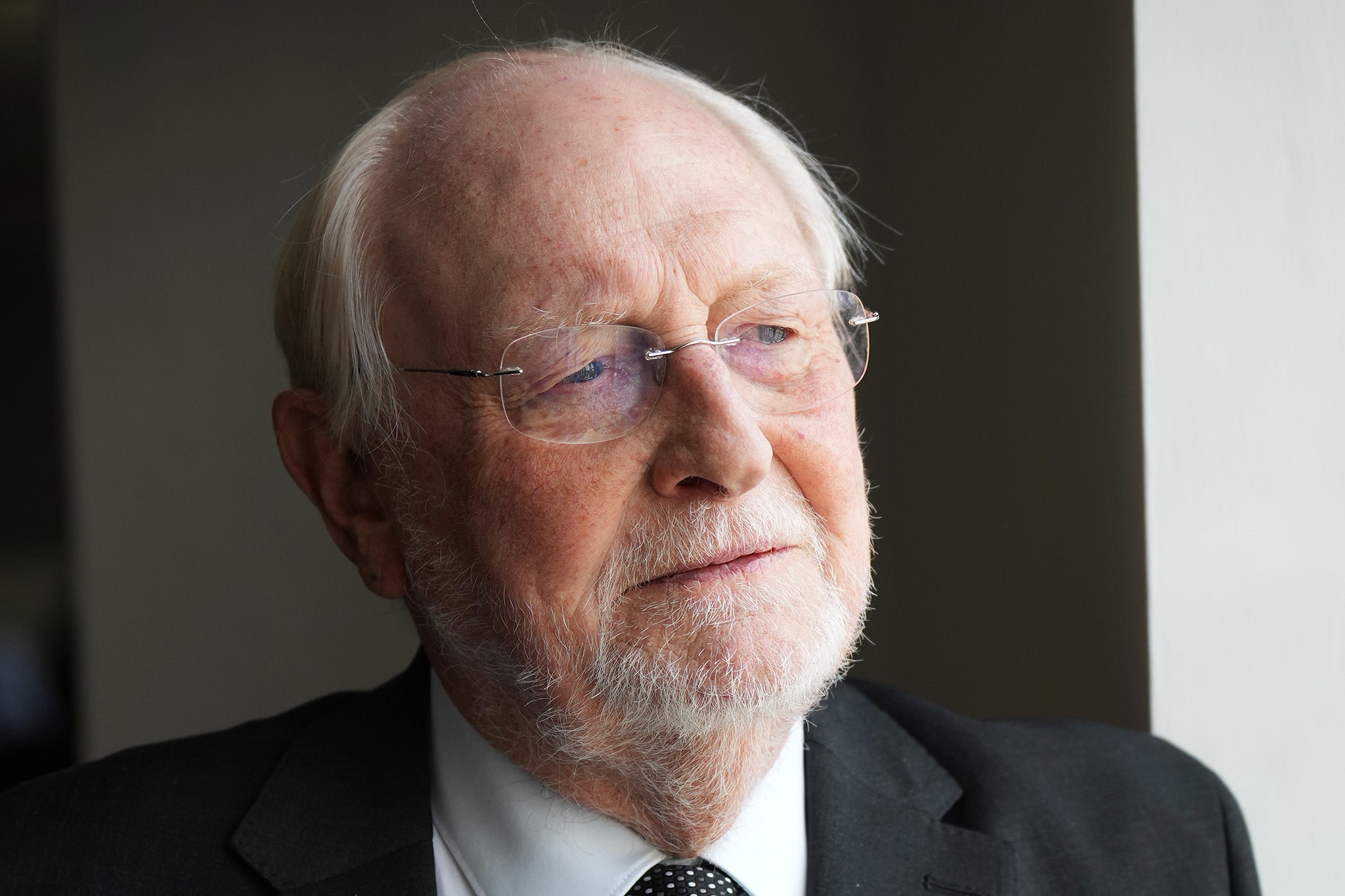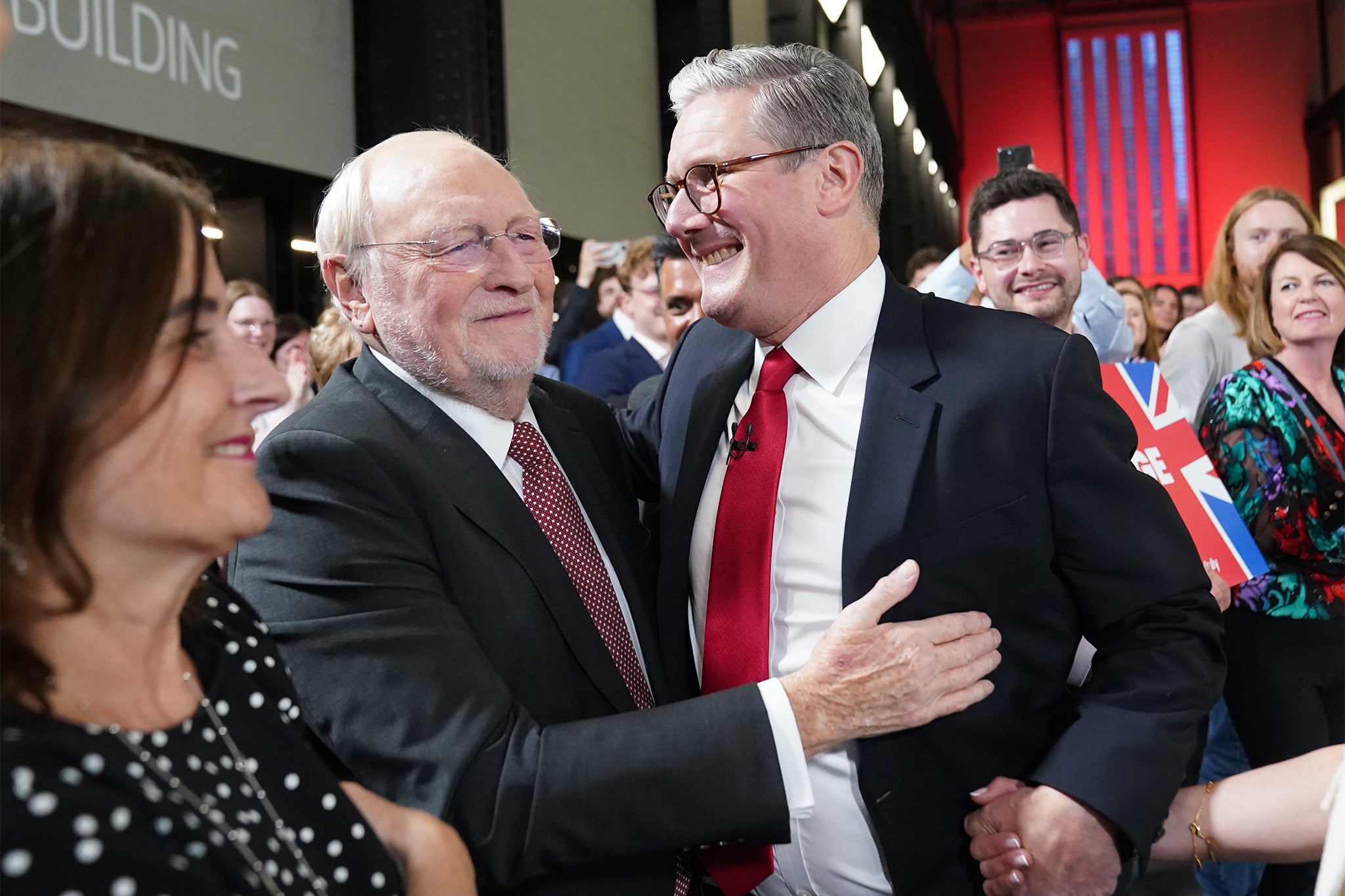Former Labour leader Neil Kinnock has told Sir Keir Starmer it is “time to look at rejoining” the European Union to ease the country’s economic woes and get a grip on the small boats crisis.
Lord Kinnock, who led the Labour Party from 1983 to 1992, said the UK could no longer afford the “huge self-inflicted losses” created by leaving the European Union – and that restoring membership would be a major boost for growth.
He said he understood the reluctance within government over the issue, but “sooner or later, we’re going to have to say if we really want sustained economic growth, we have to be part of a body of the single market with our nearest neighbours”.
The comments by Lord Kinnock, a former European Commissioner and vice-president of the European Commission, come at the same time as warnings that Rachel Reeves will have to raise taxes in the Budget in November to meet her self-imposed borrowing rules. On Friday, experts warned that unexpectedly high government borrowing figures in August meant tax rises were “inevitable”.

Lord Kinnock said: “If we rejoined, we’d be able to get rid of the economic growth deficit, which is costing us £100bn a year, which means the government is losing £40bn in tax revenue. We can’t afford to carry on losing revenues on that scale or the investment in jobs that would go with that amount. We need to resume normality and be part of our continent again.
“It would hugely help our economy out at a time of desperate need in a major way.
“It wouldn’t be marginal, it would be about five per cent of GDP added to our economy,” he added. “I think it has always been time to look at rejoining the EU.”
Lord Kinnock also argued that EU membership would strengthen Britain’s ability to manage migration, as Sir Keir fails to get a grip on illegal migration with small-boat crossings at a record high.
Around 1,000 people crossed the Channel in dinghies on Friday, while the government has so far only been able to deport three migrants under its “one in, one out” returns deal with France after a slew of last-minute legal challenges.
Lord Kinnock said: “It would help the small boats crisis, too, as we will be part of the Dublin Protocol again,” he said. “Under that protocol, which we participated in until 2021 when we fully left the EU, anyone who arrived by irregular means could be returned to the last EU country through which they came from [France].

“At the time, we didn’t have to do it much as there were very, very, very few people arriving by irregular means. Why? Because they knew that when apprehended, they would be sent back. We had to get out of the Dublin Protocol when we left the EU, something believers of Farage and the rest of them never acknowledged, but it was always the truth. When we left the EU, we left the Dublin Protocol, which is the main deterrent to irregular migration. That is what has happened.”
On free movement, Lord Kinnock said the system had never been properly enforced before Brexit.
“If you haven’t got a job within three months of moving inside the single market, you have to go home. Before Brexit, we had a system without limitation, and that was a mistake, as people need reassurance that if people aren’t coming here to work, then they are not as welcome as they would be if they were making a contribution.
“When we had the figures before the referendum, the migrant workers from the rest of the European Union were generating a surplus revenue of about 2.6 per cent to £3bn a year. For very understandable reasons, they were young, working, made little demand on the education system, virtually no demand on the NHS, and they weren’t unemployed. They were generating much more than they took out.”

Lord Kinnock has called for Britain to return to full EU membership, but would also support remaining outside the bloc if Britain rejoined the single market.
“The most sensible proposal was made back in 2018 by my son, Steve [Kinnock, MP and care minister], who advocated for a common market, too. That is to say, rejoining the European Free Trade Association with Norway. It would have meant we were in the single market and the customs union, we wouldn’t have to accept the rules of the European Union, without it being on the council of the commissioner or in the parliament.
“Although,” he continued, “I much prefer the idea of restoring full membership because it gives the UK power and influence over our nearest and biggest market of the European Union. It would be an enormous benefit to our country and people.”
He conceded that Labour would face political difficulties in pursuing re-entry.
“It is something a Labour government can do but not easily and without having a big argument, which is an inhibition. I think the sensible people in the government understand there would be this enormous diversion of a huge debate over re-entry. They are reluctant to do it for good reasons because they want to focus on promoting growth and restoring public services. I understand the reluctance, but sooner or later, we’re going to have to say if we really want sustained economic growth, we have to be part of a body of the single market with our nearest neighbours.”
It is not the first time in recent months that Lord Kinnock has urged the government to adopt a different stance on certain issues. In July, he suggested a wealth tax would bolster the public finances without breaking Labour’s election pledges, while earlier this month, he claimed those supporting Palestine Action are not terrorists in the latest blow to Sir Keir’s government, which proscribed the group.
A government spokesperson said: “We will not be rejoining the European Union.
“Thanks to the new UK-France treaty, people arriving in small boats can now be detained and sent back to France, with the first returns having taken place this week.”







